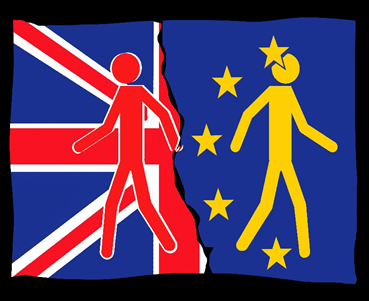Summary
- The move could give time to the UK authorities to solve the issues faced by businesses at home.
- Businesses are facing hurdles in ferrying goods at the ports after the trade deal got implemented on 1 January.
The European Commission has asked its member states to delay the applications of the post-Brexit trade deal with UK till April. On Tuesday, the proposal to extend the deal was sent for approval after which it will be sent to a joint council looking into the post-Brexit treaty.
In December, Britain’s House of Commons voted in favour of a trade deal, thus ending the UK’s decades-long association with the EU. The UK’s exit from the EU’s customs union and the single market now means that trade will not be as smooth as before. It would now be necessary for companies to file fresh paperwork, accompanied by the risk of their products being held up at the border. Firms offering financial solutions will not be able to function across the EU.
The Brexit changed much for businesses in the UK. The services sector contributes to 80 per cent of the UK’s economy. Post-Brexit, sectors such as auditing, architecture and consulting would be facing new restrictions and businesses might be required to have an office in the EU. It may also be necessary to have local approval for their professional qualifications.
One of the pressing points of concern for businesses in the UK is customs clearances in ports. Post-Brexit trade deal mandates that businesses exporting to the EU should file customs declarations. Truckers are required to have government-issued permits and paperwork to be able to move goods from Dover to Calais, which is the UK’s busiest crossing point with the EU.

Copyright © 2021 Kalkine Media Pty Ltd.
The new sets of rules resulted in fear of delays at the border and the threat led to manufacturers hoarding necessary raw materials. Food manufacturers feared that fresh produce would be left to rot.
Prominent businessmen across the UK informed the government that businesses are facing hardships to ferry goods at the ports, post Brexit deal got implemented. Industries would be staring at huge financial losses if the situation did not improve.
In the last week of January, business leaders and stakeholders held a meeting with Cabinet Office minister Michael Gove. The Confederation of British Industries, Make UK, British Chamber of Commerce, Institute of Directors, and the Federation of Small Businesses issued a joint statement stating that the issue should be resolved urgently.
Besides, exporters are facing different issues, like their goods being held up at the ports to lorries being forced to return empty due to unavailability of custom certificates.
PM Boris Johnson had said that the initial disruptions being faced by the industry were teething problems and would get resolved eventually but the industry believes the government should mitigate the impact as much as possible.
Stakeholders had pointed out that there was no proper advice from the government departments on the new rules, which is making the state of affairs complicated.
For businesses to function smoothly in the post-Brexit reality, the government needs to resolve these issues immediately as the grace period for making the necessary adjustments would expire in two months, stakeholders have said. As cross-border traffic picks up in the coming few months, these unresolved issues would result in chaos.
Apart from customs, animal trading would also need fresh paperwork. There would be designated border inspection posts through which the goods would be required to pass.
Goods moving out of the UK are already facing checks. Britain has delayed till July import controls on goods from the EU. However, companies would have to keep a tab of their dealings and would be required to file the customs declarations in July.
The EU’s proposal to delay the application of post-Brexit trade deal with the UK could come as a respite to the UK government. The move could buy some time for the UK administration to solve the issues at home due to a lack of clarity on rules and procedures.



